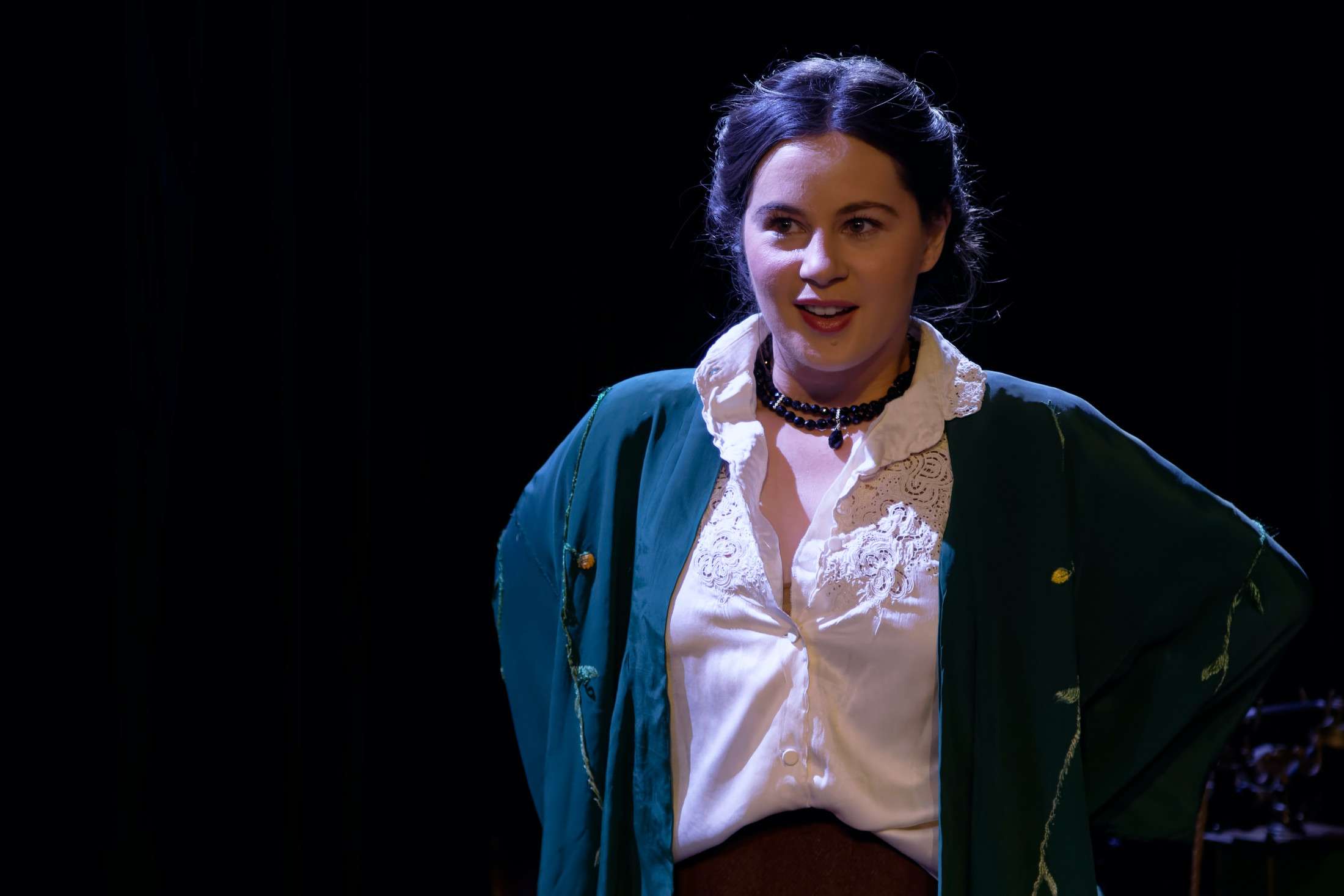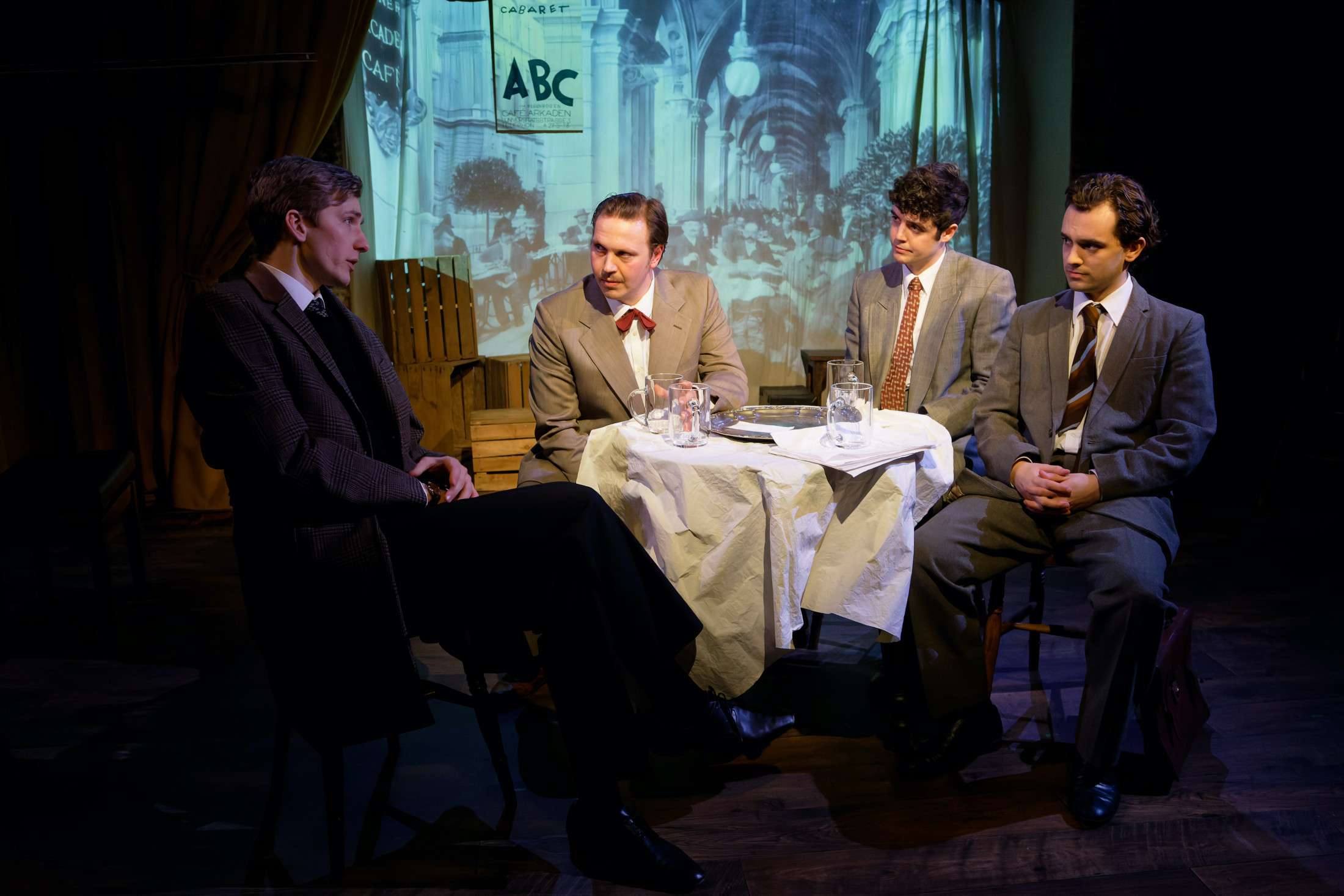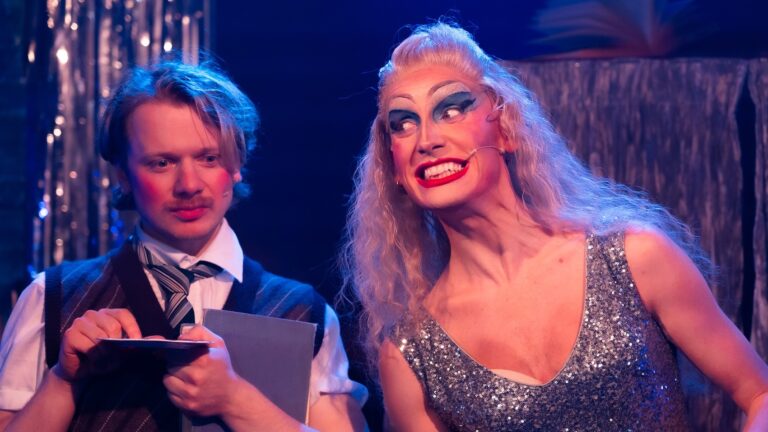A piano, two tables and a few chairs became the ABC theatre – a venue for political theatre – and other rooms and apartments in a 1938 Vienna in the iron grip of Naziism. The grimness of the set conveyed the atmosphere of the city, writes Michael Holland.
Astoria, by Tony Britten, tells the true story of Jura Soyfer, the son of wealthy Jewish parents who fled the Bolshevist revolution in Russia. Jura grew up studying socialism in Austria and became a regular writer of satirical articles and plays on his way to having them performed regularly at the ABC, which could have caused trouble in those troubling times when many radicals were being jailed. Being a small venue, with seating below 50, the ABC was exempt from any censorship, so the plays and skits would mock Hitler and the Austrian officials who embraced Naziism.
The ABC would be full of like-minded people but as the 30s progressed the rhetoric grew more anti-semitic and that roused the uninformed folk who were told their livelihoods were at risk from Jewish influence, rousing them to violence against the Jewish community: ‘They called me a Jewish pig as they kicked my face in to a more Aryan design,’ says Hupka, the founder of Cabaret ABC.
Jura wrote Astoria for the theatre, a metaphor for Austria, a land of plenty where everyone had a job and people married for love not money. Astoria mocked the notion of the Fatherland but attracted everyone to its borders where the rules for being allowed in were preposterously difficult: ‘Have you got a licence to allow your canary to trill?’ But Astoria was a dream; it was nowhere, a fallacy with no land for people to live or places to work. It was the place that Hitler drew people to with his dynamic speeches.
As Europe got closer to war, Jura’s close-knit circle of friends tried to continue their work, though more warily.
As time went on, these well-to-do radicals bought their safe passage out of an increasingly frightening Austria. Jura Soyfer was smuggling his writings out while still putting on plays, although he and his friends were being followed by the secret police and they would spend time in jail occasionally. These were dark days that did not end well for most of them.

Astoria is a play within a play where the cast of five jumped between each with just a change of accent, often creating confusion. For me, at least. And it was a tad pretentious when it had no need to be. There were conversations in the group about George Bernard Shaw, Stephen Spender, Brecht and Kim Philly for no good reason other than to show how much the writer knew about them. They slowed down the excellent story, lessened the drama, and turned my thoughts away from the drama and to someone with their head up their own backside.
Olivia Benjamin was a bright light amid the gloom; a Mountview Academy graduate – a place where you know they come out ready to work.
Astoria echoes what is going on right now in this country and many others, with the flames of racism fired up by right-wing politicians. We should all be aware of how it ended in Germany. And that is why this play is relevant. I just wish this important and poignant story had been told in a different way.
Brockley Jack Studio Theatre, 410 Brockley Road, London, SE4 2DH until 15 April 2023. Tues – Sat 7.30pm.
Box office: www.brockleyjack.co.uk or 0333 666 3366 (£1.80 fee for phone bookings only)
Tickets: £17, £15 conc., 14+
Running time: Two hours, including interval.






